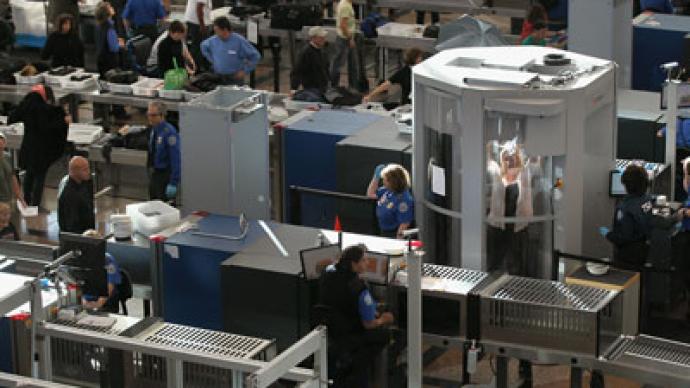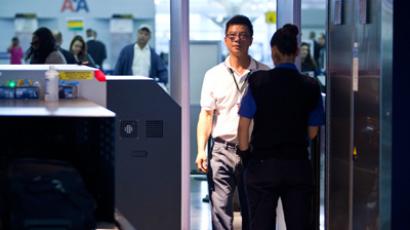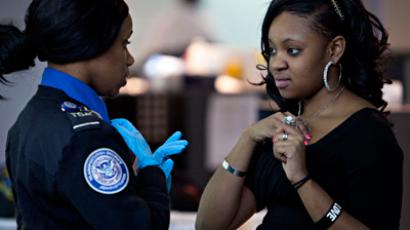TSA nude scanners might be coming to federal buildings

The TSA is retiring 250 of their high-tech “backscatter” screening machines in the coming weeks, easing both healthcare and privacy woes from frequent travelers that don’t trust the devices. Are they really going away for good though?
Backscatter makers Rapiscan and the Transportation Security Administration announced the ending of a partnership just last month, and by June 1 the TSA will have removed the space-age body screeners from around 200 airports across the country. In a recent interview with Federal Times, though, TSA spokesperson David Castelveter says that the roughly $40 million worth of machinery could be moved elsewhere to provide airport-style security outside of departure terminals.“We are working with other government agencies to find homes for them,” Castelveter tells reporter Andy Medici. “There is an interest clearly by DoD and the State Department to use them — and other agencies as well.” According to Medici, those machines may soon be coming to federal buildings to be used in routine, day-to-day security screenings for both visitors and employees. Last February, lawmakers in Washington responded to opponents of the machines by demanding that the TSA only implement devices that produce "generic passenger images,” a maneuver they hoped would bring change substantial enough to alleviate the privacy concerns from travelers made uncomfortable by the X-ray-like machines that have earned them the moniker “pornoscanners.” With a deadline looming and Congress’ challenge left unanswered, though, the TSA confirmed last month that their $5 million contract with Rapiscan would be coming to a close and the company’s Secure 1000SP Advanced Imaging Technology (AIT) systems and Automated Target Recognition (ATR) software would be shelved.“It became clear to TSA they would be unable to meet our timeline,” Karen Shelton Waters, an assistant administer for acquisitions at the agency, told Bloomberg at the time. “As a result of that, we terminated the contract for the convenience of the government.”Now just weeks after that announcement, Medici’s report suggests that Americans won’t be saying goodbye to the backscatters anytime soon. Although the TSA has removed at least 76 of the machines from airports already and intends on having the other 174 gone by the June 1 deadline, Castelveter wants them elsewhere.“Hopefully we will be able to deploy them within other government agencies,” he says.In the January 17 press release from Rapiscan that announces the end of their backscatter deal with the TSA, the company hints at what could be to come regarding other deals. “As the Secure 1000SP has been operated by TSA as an effective imaging system, TSA plans to deploy these systems, with Rapiscan’s assistance, to U.S. government agencies that already rely on the Secure 1000 product line or can enhance their security programs with the Secure 1000SP,” the presser reads. Late last year in November, Rapiscan announced on its website that it had been awarded a $15 million contract from an unnamed, “critical US government agency” in order to provide people and baggage scanning technology. Although that write-up declined to name the entity that will work with Rapiscan or what kind of technology will be implemented, it does little to calm the fears of those who worried that invasive airport pat-downs were just the beginning of a bigger trend — a problematic one where Americans are forced to sacrifice privacy for protection.Rep. Bennie Thompson (D-Mississippi) made a statement last month condemning the use of the devices and insisted “The American public must be assured that these machines will not be used in any other public federal facility.” Bob Burns of the TSA Blog says the units will be “stored until they can be redeployed to other mission priorities within the government.”













